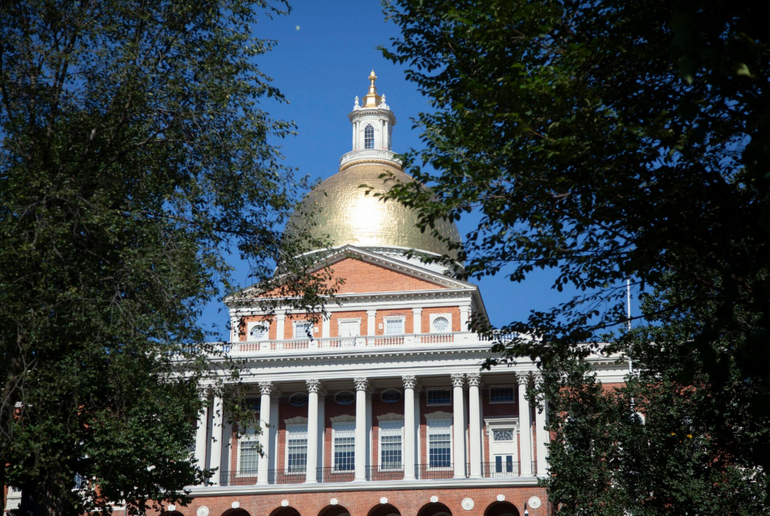Affordability has become the new watchword in American politics and an emerging House energy bill marks a sharp shift away from the clean energy thrust of recent state laws and elevates pocketbook issues that are also on the minds of ratepayers and businesses.
Citing federal actions that are impeding the state’s clean energy transition, House Democrats have assembled an omnibus bill that appears to represent a response to Gov. Maura Healey’s energy affordability bill (H 4144). The measure is sparking a backlash from clean energy advocates who have helped shape state climate laws.
House members of the Telecommunications, Utilities and Energy Committee face a Wednesday deadline to vote on the 105-section bill, sponsored by Braintree Democrat Mark Cusack, that would tie clean energy transition regulations and requirements to a new “affordability and competitiveness standard.”
The bill detaches the Mass Save rebate program from its greenhouse gas emission reduction focus and retrains it on its original focus on cost effectiveness and energy efficiency, according to a summary. If passed, the bill would also remove the ban on customers receiving Mass Save rebates for efficient gas heating systems and cap the program at $4 billion. The bill cuts the 2025-2027 Mass Save plan to reduce it from $4.5 billion.
The bill creates a Division of Clean Energy Procurement within the Department of Energy Resources and authorizes that agency to procure energy storage and demand response services, replacing existing procurements conducted by electric distribution companies. A central procurement fund would be established to finance long-term contracts, and funded by tariffs approved by the Department of Public Utilities, as well as legislative appropriations, bid fees, and other public/private revenue.
The bill also uses clean peak energy credits to boost the standing of hydropower, requires quarterly reporting on rates by competitive electric suppliers, temporarily reduces the amount of new power that suppliers must sell from renewable energy sources, and repeals the plan to add biomass to the MLP Greenhouse Gas Emission Standard in 2026.
The summary also outlines parts of the bill that repeal a law banning new nuclear power plants from being constructed without statewide voter approval, and extend from 2027 to 2029 the deadline for the state to contract for 5,600 megawatts of offshore wind power.
Cusack, who co-chairs the energy committee, was unavailable for comment but earlier in the session talked about reevaluating the state’s carbon reduction requirements. He opened the poll Monday at 12:30 p.m., citing Joint Rule 1D, and the deadline for committee members to vote on the bill is Wednesday at 4 p.m. The bill is a redraft of Cusack’s solar permitting bill (H 3469) and the polling memo lists bills “attached” to the redraft: H 3459, H 3475, H 3493, H 3520, H 3521, H 3534, H 3542, H 3549, H 3552, H 3555 and H 3556.
The Conservation Law Foundation said the bill would “gut the state’s climate law and cut energy efficiency programs that help reduce pollution and utility bills for Massachusetts families.” The Green Energy Consumers Alliance is speculating about a House vote on the bill Thursday and urging people to ask lawmakers to “oppose any legislation that would weaken the state’s emissions reductions targets or reduce the budget of the Mass Save program.”
A spokeswoman for House Speaker Ron Mariano on Tuesday called the idea of a House vote on Thursday on the bill “not accurate,” noting the bill will probably move next to the House Ways and Means Committee. Mariano has advised representatives of a “potential” formal session Thursday.

